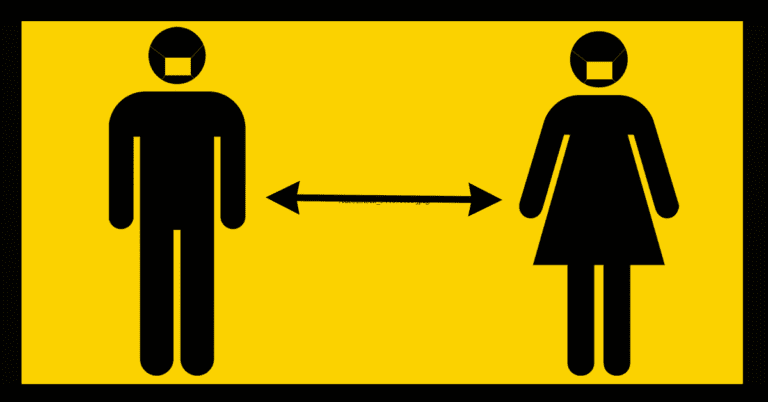Will You Owe Child Support After Your Divorce?

Divorce is happening. Whether you initiated the divorce or it came as a complete shock, you still need to start planning for your post-divorce life. Divorce takes a financial toll on both spouses, and if you have children, child support may be a new monthly expense you must face.
How do you know if you owe child support and how is it calculated? The answer to the first question is relatively simple while understanding the latter will depend on your child custody arrangement, your state of residence, and a variety of other factors. Let’s take a look at this complex topic so you can start preparing for the cost of child support if needed. We also recommend that you take a look at our Four-Step Divorce Financial Recovery Guide.
This article presents general information only and is not meant as a substitute for legal advice. The child support in your situation may be different and we recommend you seek competent advice from someone well versed in the laws of your state.
Will I Owe Child Support?
It’s relatively easy to figure out of you are likely to owe child support after your divorce.
- Do you have at least one child with your spouse (including legally adopted children)?
- Will your spouse have full or partial custody?
- Do you earn more income than your spouse?
If the answer to all three of these questions is yes, then chances are very high that you will owe child support unless your spouse happens to be independently wealthy. This is true regardless of gender. (Read: Do Women Have to Pay Child Support to Their Husbands?)
How Custody Affects Child Support
Your custody arrangement does affect the amount of child support you have to pay. When a court calculates how much child support you might owe, the judge will take into consideration the percentage of time you spend with your children. The greater amount of custody you have, the lower your child support bill is likely to be since you’ll theoretically be spending some of your income on your children when they are in your custody.
How Child Support Is Calculated
How much child support can you be expected to pay after your divorce is complete? The answer to that question will depend in great part on the state in which you live. Each state uses its own formula to calculate child support. To make things even more complicated, some states give judges discretion to deviate from the state standards if your family presents special circumstances. Other states require judges to stick much more closely to the rules.
The three most common child support formulas are:
- Income Shares Model
- Percentage Income Model
- Melson Formula
The income shares model is the most common child support formula used in the United States and is used in California, New York, and Ohio, among other states. In this model, the income of both spouses is taken into consideration and the percentage difference plays a significant role in allocating child support. For example, Jeff makes $3,000 a month and Amy makes $2,000. Their total monthly income is $5,000. Amy’s share of that income is 40%, while Jeff’s share is 60%.
Amy gets full custody of their son, and the judge decides that the monthly cost to support that child is $1,500. Since Jeff’s share of the total monthly income is 60%, he will be responsible for paying Amy 60% of the monthly child support cost, or $900 each month. (Forty percent of $1,500 is $900.)
Percentage of Income Model
Used in states including Texas and Alaska, the percentage of income model dictates child support based on a percentage of a parent’s gross or net income. For example, a judge may decide that Jeff must pay 25% of his income in child support to Amy. Jeff’s income is $3,000 a month, meaning his child support payment is $750 a month. In some states, this percentage stays the same no matter how a parent’s income changes over time. In other states, that percentage can fluctuate as the parent’s income changes.
The Melson Formula
The Melson formula, used only in Hawaii, Delaware, and Montana, is a flexible model that takes into consideration, among other factors, the specific needs of the children and the children’s standard of living. For example, if Jeff’s son has a medical condition that requires expensive medication or frequent doctor visits, a judge may rule that Jeff has to pay a great amount of child support to Amy to cover these expenses.
It’s always a good idea to speak with an experienced divorce attorney to get a better idea of how your specific state calculates child support.
Separate Agreement with Your Spouse
Is it possible to agree on a child support amount with your spouse and not get the courts involved? Yes and no. You and your spouse can agree to your own formula, but the court will need to approve your divorce settlement, including child support payments, before it can be legally applicable. If a judge determines that the agreement isn’t in the best interest of the child, they could reject the agreement.
However, if you and your spouse are willing to work together through mediation or collaborative divorce to figure out separation of assets and child custody, it is certainly possible to try and come to an agreement on child support as well.
Changing Your Child Support Payments
Is it ever possible to change your child support payments? What happens if you lose your job or your ex gets remarried and has access to more income?
In order to convince a judge to lower your child support, you must show a clear change of financial circumstances as it relates to you or your ex-spouse. In other words, you either need to prove that your income has decreased or your spouse’s income has increased. Some of the most common reasons to request lower child support are:
- You’ve lost your job or your income has decreased substantially
- You are facing dire financial circumstances, for example as a result of an expensive illness
- Your spouse got a promotion and is now earning more money
- Your spouse remarried and is earning more income
- Your spouse received an inheritance
It is possible to go directly to your spouse, explain your situation, and get them to agree to lower your monthly child support payment. This change will need to be approved by the court. If your spouse doesn’t agree to the change, you can petition the court and present your case to the judge.
Otherwise, prepare yourself to pay a monthly amount of child support until all of your children reach the age of majority. In most states, that age is 18, though in a few states you may be expected to pay until your children reach the age of 21 in certain circumstances.
To learn more about how to financially, legally, and emotionally prepare for divorce, we encourage you to attend the next Second Saturday in your area.






